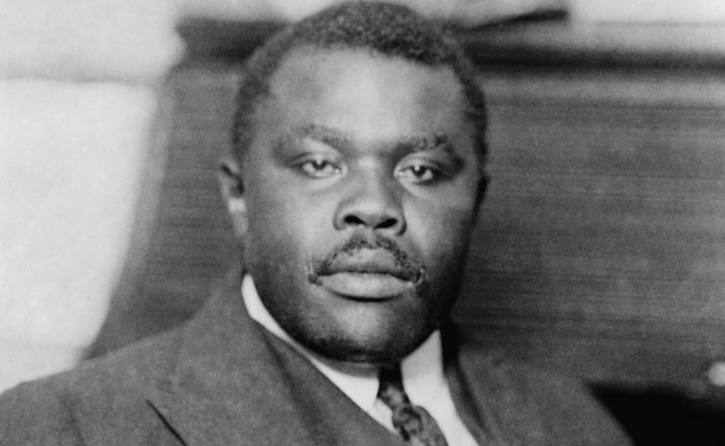Subscribe for all my updates and don't miss a thing! Sign me up!
Marcus Garvey - Jamaican National Hero- 10 Things You Should Know
by Deon Clarke | Associate Writer

Photo: National Hero - Marcus Mosiah Garvey Photo Credit: WorldAtlas.com
As we celebrate Heritage Week during the period October 10 – October 18, 2021, a key element in this celebration is highlighting our Jamaican National Heroes. We recognize their invaluable contribution to the building of our nation. Today we introduce no other than Marcus Mosiah Garvey - human rights, civil rights, and political activist, journalist, publisher, orator, entrepreneur and National Hero. Let’s take a look into his life and work by highlighting 10 things you really should know about this great Jamaican hero.
- Marcus Mosiah Garvey was born on August 17, 1887, at 32 Market Street in St. Ann’s Bay, St. Ann Jamaica. He was one of 11 children born to father Marcus Garvey Snr, a stone mason, and mother Sarah Jane Richards, a housemaid.
- He is the first National Hero of Jamaica and was conferred with this honour of Order of National Hero in 1969 according to the second schedule of the National Honours and Awards Act, also established in 1969.
- Marcus Garvey migrated to Kingston as a youth at the age of 14 when he left school and worked as an apprentice in a printery. He later published a small paper called The Watchman.
- He left Jamaica in the 1900s and travelled extensively throughout his career to many countries where he observed the poor living and working conditions of black people.
- He formed the Universal Negro Improvement Association (UNIA) in 1914 in Jamaica and this grew into an international organization. The purpose of the organization was to encourage worldwide self-government for black people, to initiate self-help economic projects and to protest against racial discrimination towards black people.
The group advocated for a separate but equal status for persons of African descent, which also led them to seek to establish independent Black states around the world, particularly in Liberia which is located on the west coast of Africa. Today, the UNIA still exists in Jamaica, the USA as well as some other countries. - He went to the USA in 1916 and lived in Harlem, New York, where he led the Harlem Renaissance Group. He advocated for black people and delivered his “freedom” doctrine throughout the country to oppressed black people. The emergence of this noted human and civil rights activist did not go down well with the country’s officials and he was imprisoned under questionable mail fraud charges, and later deported to Jamaica.
- While in the United States, he founded the Negro World newspaper, a shipping company named Black Star Line.
- On returning to Jamaica, Garvey in 1927 continued his political quest. In 1929, he formed the People’s Political Party but was unsuccessful in the national elections. He, however, won a seat with the Kingston and St. Andrew Corporation (KSAC).
- The world during the time of the 1930s was not seemingly ready for the progressive ideas of Marcus Garvey and he again left Jamaica, this time bound for England.
- Marcus Garvey died from a stroke in London, England on June 10, 1940, and his body was exhumed and brought back to Jamaica in November 1964 to its final resting place, The National Heroes Park.
Today many young black people in Jamaica and across the world follow his teachings and are appreciative of the role he has played in bringing awareness to the power of unification of black people, and the rights of black people on a whole. His movement led to the formation of many other black rights activist groups. His progressive way of thinking was far beyond his time but is now widely accepted as the fight for equal rights and justice for black people around the world continues.
Over the years, there have been several increasing calls both locally and internationally to have Garvey exonerated of his criminal charges. It’s interesting to see if and when this will be done. Regardless, we salute our first National Hero – Marcus Mosiah Garvey.
I also recommend you read Marcus Garvey, The Freedom Fighter.
Regards,
DC
References:
- Marcus Mosiah Garvey, Jamaica Information Service, https://jis.gov.jm/information/heroes/marcus-mosiah-garvey/
- fast_facts_national_heroes, Jamaica National Heritage Trust, http://www.jnht.com/fast_facts_national_heroes.php
- https://jamaica-gleaner.com/gleaner/20101005/news/news5.html
- Marcus Garvey - Biography, Philosophy & Facts - HISTORY, Jamaica National Heritage Trust, http://www.jnht.com/fast_facts_national_heroes.php
- Marcus Garvey, Wikipedia, https://en.wikipedia.org/wiki/Marcus_Garvey
- Marcus Garvey | Biography, Beliefs, & Facts, Britannica, https://www.britannica.com/biography/Marcus-Garvey
Editor's Note
What are you thinking? Do you have a question as well? Submit it here! With wel over 2000 questions already answered, chances are we assist :-)
New! Get My Latest Book👇🏿
|
You asked, I've answered! You no longer need to save for months or years, to enjoy paradise! I spilled the beans! sharing my top tips on finding cozy accommodations and secret gems, only the way a native could! Click Here to pick it up on my e-store and start saving now! |
See The Best Of Jamaica - In Videos!
|
My channel reaches over 140,000 subscribers worldwide and has leveraged over 11 million views, sharing, what I call 'The Real Jamaica'. Subscribe today and join our family of viewers. |
Read More ...
New! Experience The REAL Jamaica!
Book Your Private Tour here and experience Jamaica the way we (locals) do!
P.S. Didn't find what you were looking for?
Still need help?
Click Here to try our dependable and effective Site Search tool. It works!
Or, simply click here and here, to browse my library of over 500 questions and answers! Chances are someone already asked (and got an answer to) your question.





